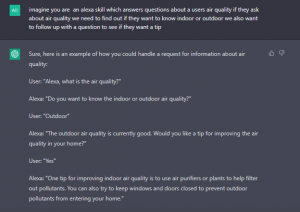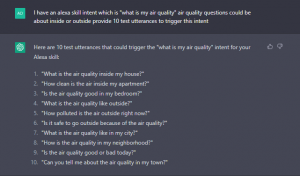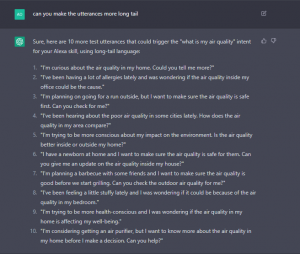What is ChatGPT?
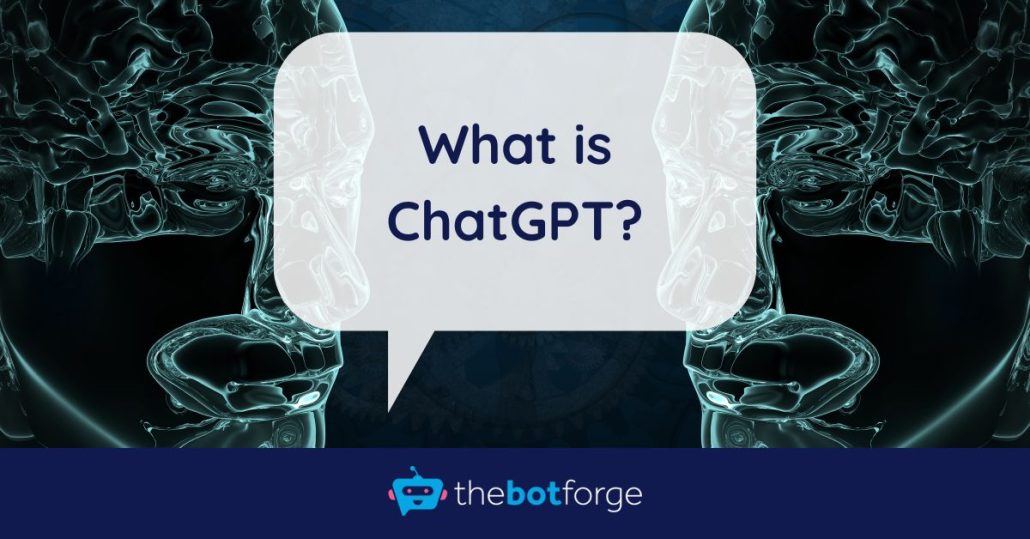
AI-Mazing
ChatGPT is the latest technology release from the team at OpenAI and it's taken the internet by storm. Reactions ranged from amazement to scepticism, with everything in between.
It's been hugely popular with more than a million people using it in the first 5 days.
ChatGPT is OpenAI’s latest large language model, released on Nov 30th 2022, in beta as a chatbot app which you can interact with on the OpenAI website.
Like GPT3, it can explain scientific and technical concepts in a desired style or programming language, brainstorm basically anything you can think of asking... and yes, of course, hold pretty complex conversations!
Like any new technology in this field, particularly one which has caused such a stir, it's important to not get too over excited and consider the real value, what can it do and what are its limitations.
Let's take a look...
So, What is ChatGPT?
You're probably wondering how it works.
The system is built on a type of artificial intelligence (AI) called a large language model. The ChatGPT model is based on reinforcement learning from human feedback and the GPT series of models from OpenAI which are themselves trained on extraordinarily large amounts of data.
To create ChatGPT, the latest GPT-3.5 Instruct model was fine-tuned with conversation examples, instead of the whole internet, to concentrate on improving the model's specialist conversation abilities. Reinforcement learning was then used so that the model could practice its conversation skills and improve.
The system works like any online chatbot, and you can simply type out and submit any question or prompt you'd like the AI to address.
The ChatGPT service is currently accessible via a web chat interface. Its simple interface hints at what it can do but also some of its limitations.
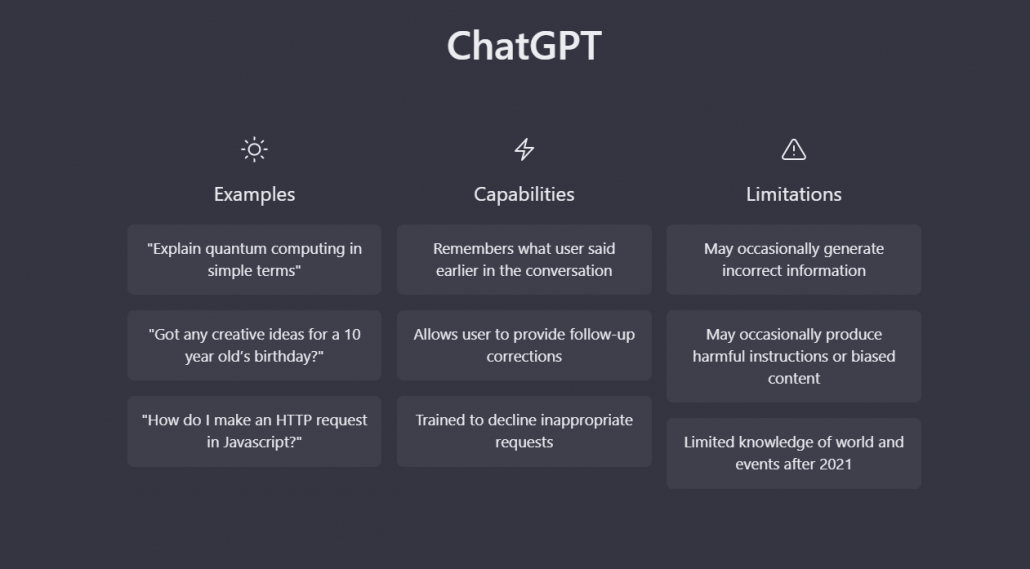
What Can ChatGPT Do?
ChatGPT can do a hell of a lot. It's beyond the scope of this post, or any post for that matter, to cover everything it can do, but let's focus on some of the things it does well.
It's also worth mentioning that all of these tasks are achieved automatically. No need to write complex prompts, configure temperature, or fine-tune models.
It can have complex conversations with you
The new chat capability of ChatGPT allows for a pretty natural conversation experience.
It is the first chat-focused large language model and it's really good at it.
Previous attempts at creating GPT3-based chat experiences has been hacky and pretty unreliable.
It has long-term memory of up to 8192 tokens and can take input and generate output about twice as long as GPT3.
All of this allows ChatGPT to maintain context and generate follow-up responses with astounding ease.
The ability which ChatGPT has to hold a multi-turn conversation is, in my opinion, the real game changer here.
To create a similar experience using the latest Intent-based conversational AI technology, i.e Rasa, involves a serious amount of work.
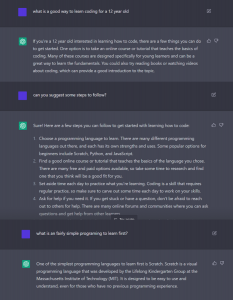
It can have safer conversations
In order to make ChatGPT "safe," OpenAI spent a lot of time attempting to disable responses that dealt with violence, terrorism, drugs, hate speech, dating, sentience, and eradicating humanity.
OpenAI also claimed to disable web browsing and knowledge of current dates.
It's still relatively easy to compromise these security efforts though. OpenAI have placed clear warnings that this is a test and encourages reporting of results.
So you can assume this feedback will be used to make service safer.
It's incredibly creative
As we've previously discussed, the best use cases for ChatGPT involve creative writing, brainstorming, drafting, and creative information presentation.
Any tasks where originality is valued more highly than accuracy.
Writing blog posts and content
From blog posts, to summarisation, to copywriting, to writing lecture notes about complex subjects... ChatGPT is pretty good at taking on any of these tasks.
Normally after a little bit of polishing and editing the end result is really impressive.
Writing lyrics and short stories
It's also amazing at generating rhyming poetry and producing lyrics and understanding the components of a song i.e chorus, verse, and bridge.
This is a huge leap compared to GPT3 where, from our experience, you have to finetune a DaVinci model based on a specific lyrics dataset.
It Can Help Create Better Conversational Experiences
ChatGPT and LLMs can do a lot to help create better chatbots and voice assistants.
This is really interesting for the world of conversational AI.
Whilst some people in the industry are looking nervously at their intent-based models, others are imagining a better world where LLMs such as ChatGPT can really help them to create better chatbots and voice assistants.
Here are some examples of what ChatGPT can do:
- Creating intent utterances
As a tool for writing utterances for intents, it's fantastically capable of providing training data for intent matching. In the absence of any available customer conversational data, ChatGPT utterances can serve as a good means to bootstrap a chatbot ready for further iterations. - Entity generation
Create entities by asking for permutations e.g "list 10 different ways of saying desktop" or "list 10 different types of cycling" - Prompt variations
It's good practice to create different prompts to make for a better experience, you all knew that right? Well ChatGPT is brilliant for creating different ways of saying the same thing: "give me 5 ways of saying would you like a tip of the day" - Happy path creation
ChatGPT can help provide some conversation path examples if you provide it with an outline of the chatbot/VUI you are creating. We've been using this to create happy paths for Alexa skills but this approach could be used for any conversational experience.

- Persona creation
ChatGPT can also be used to simulate conversations and provide more detail about specific personas - Test case generation
This is a really useful one. If you want to create test utterances to train a model then for each specific intent you can simply ask ChatGPT to create some for you. Just explain the intent itself and away you go

What's even more useful is the ability to prompt ChatGPT to create long tail test utterances with a simple follow-up question to the previous one.

It Can Write Code Examples
There are already some really interesting software products based on GPT3 Codex with one of the most standout apps being GitHub Copilot.
ChatGPT continues this with the ability to create pretty good code output. Here is an example of a request for some simple Javascript code. Note the fantastic formatting capabilities of ChatGPT:
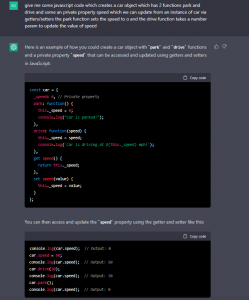
ChatGPT even has the ability to create test code "can you create some unit tests in jest to test the object" and even to debug code to a limited degree.
What are ChatGPT's Limitations?
ChatGPT's drawbacks are highlighted nicely on the ChatGPT UI:
- May occasionally generate incorrect information
- May occasionally produce harmful instructions
- Limited knowledge of world and events after 2021
This is a pretty good summary.
ChatGPT Sounds like many of the millions of people posting on Twitter; they sound confident but can still be wrong.
The security systems which are obviously a large part of OpenAI's roadmap for the technology can still be fairly easily broken.
Yes, it's a large language model which has only been trained on historical data so there is a limitation there if you want to provide information.
However, ChatGPT is aware of its own limitations. If you ask it about the current situation in Ukraine:
"I'm sorry, but I do not have current information about the situation in Ukraine. My training data only goes up until 2021."
What's Next For ChatGPT?
We feel there is still a lot to come. Definitely including improved safety and we feel there are more features to come. There have already been features added including conversation history and improved performance.
The brilliant formatting capabilities mean ChatGPT could be moving towards the ultimate encyclopedia, although the risks of misinformation are still there.
The costs of a technology like this are eye-watering, so we're pretty sure that at some point ChatGPT is going to cost. There are already signs of this from the daily platform limits being introduced in the latest release.
There is no doubt that there is some big money here. At the time of writing, ChatGPT has been valued at $9 Billion, and OpenAI's valuation may be approaching $30 Billion.
It remains to be seen how much OpenAI will charge for ChatGPT when it's finally released into production.
Conversational Search
There has been a lot of discussion about conversational search products and whether they will soon rival the big search engines. Many people immediately saw ChatGPT as superior to Google search. However the reality is that they are very different. The biggest points to make are that the information from ChatGPT is often not correct, responses fabricated and not up to date.
At the moment there are a lot of possibilities for conversational search and large language models and it's likely that the big search engine providers will be focusing on this area over the course of 2023.
A note on watermarking
The quality of the output from ChatGPT has already led to students and others passing off ChatGPT as human-generated. This is being treated as seriously as plagiarism.
Because of the rise in "AIgiarism" (AI-assisted plagiarism) there are increased calls for ways to identify where AI is used to generate content.
Metadata watermarking looks like a viable option to combat this.
There are already OpenAI detector tools on Huggingface. OpenAI has a working prototype of the watermarking scheme that “seems to work pretty well”, according to an OpenAI researcher.
It's suggested that a few hundred tokens – or a paragraph of text – is the point needed to get a reasonable signal that the text came from GPT3.
There is going to be more demand for this sort of technology to tackle Algiarism, mass propaganda generation, or writer impersonation.
Conclusion
It's pretty mind-blowing and I've really only scratched the surface of what's possible in this post.
ChatGPT and LLMs look set to change the conversational AI landscape forever.
If OpenAI couples the ability to fine-tune models based on ChatGPT with your own knowledge bases then this would enable the creation of a conversational FAQ with ChatGPT's engaging conversational abilities which would really open up some fantastic possibilities.
There will undoubtedly be an increase in the use of intent based and LLM conversational AI experiences.
And finally, it's really important to note that, at the time of writing, the ChatGPT service is in beta, and not production ready. It's only available for human use, via the OpenAI UI.
There is no API to use to talk to ChatGPT, unlike the other OpenAI models which are easy to use and integrate into existing workflows and tools.
For now, sit back and figure out your next question for ChatGPT.
About The Bot Forge
Consistently named as one of the top-ranked AI companies in the UK, The Bot Forge is a UK-based agency that specialises in chatbot & voice assistant design, development and optimisation.
If you'd like a no-obligation chat to discuss your project with one of our team, please book a free consultation.

